An infection with the nasty Pushwhy.com could lead to serious security issues. Users affected by the redirect can restore and protect their computers by following our complete removal guide.
Remove Pushwhy.com and Restore PC
Manual Removal Guide
Skip all steps and download anti-malware tool that will safely scan and clean your PC.
SpyHunter anti-malware tool will diagnose all current threats on the computer. By purchasing the full version, you will be able to remove all malware threats instantly. Additional information about SpyHunter / Help to uninstall SpyHunter
Distribution of Pushwhy.com
Pushwhy.com is a nasty website which has been reported to interrupt regular browsing sessions without users’ permission. Since this website could be misused for the distribution of malicious files its presence in the browser could endanger the overal security of targeted computer systems. At the moment security experts have not been able to identify a single tactic that is being used to infect the targets. We presume that the bad actors are using several of the most important methods to carry out the malicious campaigns.
A common way of setting adware attacks like Pushwhy.com is the use of email spam messages. They may directly distribute malicious file attachments containing scripts that lead to an infection. Other cases can utilize complex social engineering tricks and hyperlinks that are specifically made to confuse the intended targets into infecting themselves. Two more scenarios that are used in combination with email messages rely on infected files used as payloads ‒ documents and software installers.
- Infected Software Installers ‒ The criminals craft malicious packages made out of legitimate software installers. They are taken from the official vendor download sites, modified and then posted on online sites or attached (either as file attachments) or linked in the email messages.
- Infected Documents ‒ They represent dangerous files that usually come in the form of some of the most popular document types: rich text documents, spreadsheets and databases. When the users open them up a notification prompt will ask them to enable the built-in scripts (macros). If this is done then the malware is installed on the victim computer.
Malicious browser plugins carriers of Pushwhy.com and other associated programs can be uploaded to hacker-controlled sites and P2P networks like BitTorrent as well. The hacker operators frequently utilize template design, text and images to create portals that look like legitimate download sources. They may also use domain names that are very similar to legitimate sites and advertise them via pop-ups or ad networks.
The undesired program associated with Pushwhy.com can be found in numerous malware toolbars. They are usually made for the most popular web browsers: Mozilla Firefox, Google Chrome, Internet Explorer, Safari, Microsoft Edge. They can be distributed on such download sites or even on the browsers repositories (such as the Chrome Web Store for Google Chrome) using fake developer accounts.
Impact of Pushwhy.com
Pushwhy.com is a dubious website that attempts to scam users into enabling the generation of browser notifications in order that they could access unlimited access to video streaming and database with various torrent files. However, it is preferable to avoid any interactions with the redirect when it loads in the browser.
Since it could be configured to deliver and activate malicious code the moment a click is realized, its elimination is recommendable as soon as possible. First, it should be closed the moment it appears in the browser. Then the affected web browser should be cleaned from suspicious tracking objects as well as from dubious applications installed on it.
Otherwise, Pushwhy.com could cause redirects to other phishing sites designed to steal sensitive credentials, install adware and other undesired programs on the device, or load fake tech support sites that aim to deceive you into calling scammers.
Among the side effects that may be witnessed in case that Pushwhy.com virus plagues the system are PC slowdowns, automatic execution of the pop-up on PC starts up, modifications of various PC and browser settings and others.
Computer slowdowns may be caused by a large number of annoying ads that the virus injects directly into the affected browser. The ads that appear may be pop-ups, pop-unders, Be careful with them as a click on the wrong one could land you on a compromised web page that causes a drive-by-download attack and eventually infects your system with a severe malware infection.
This deceptive website may be used by hackers to trick users into installing various kinds of malware directly on their systems. So in case that you click any presented button, you may unintentionally grant any severe malware infection the access to your system. The code of Nsbacking.com is also detected to be set to drop malicious files through affected browsers. This scam website endangers the overall security of your system and that’s why it should be removed as soon as possible.
Remove Pushwhy.com and Restore PC
WARNING! Manual removal of the Pushwhy.com virus requires being familiar with system files and registries. Removing important data by accident can lead to permanent system damage. If you don’t feel comfortable with manual instructions, download a powerful anti-malware tool that will scan your system for malware and clean it safely for you.
SpyHunter anti-malware tool will diagnose all current threats on the computer. By purchasing the full version, you will be able to remove all malware threats instantly. Additional information about SpyHunter / Help to uninstall SpyHunter
Pushwhy.com – Manual Removal Steps
Start the PC in Safe Mode with Network
This will isolate all files and objects created by the adware so they will be removed efficiently. The steps below are applicable to all Windows versions.
1. Hit the WIN Key + R
2. A Run window will appear. In it, write msconfig and then press Enter
3. A Configuration box shall appear. In it Choose the tab named Boot
4. Mark Safe Boot option and then go to Network under it to tick it too
5. Apply -> OK
Remove Pushwhy.com from Windows
Here’s a way to remove the program. This method will work regardless if you’re on Windows 10, 8, 7, Vista or XP. Simply selecting the program and pressing delete won’t work, as it’ll leave a lot of small files. That’s bad because these leftovers can linger on and cause all sorts of problems. The best way to delete a program is to uninstall it. Here’s how you can do that:
1. Hold the “Windows” button (It’s between CTRL and Alt on most keyboards) and press “R”. You’ll see a pop-up window.
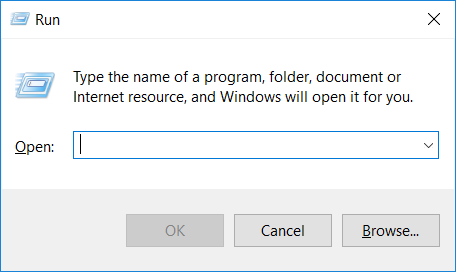
2. In the textbox, type “appwiz.cpl”, then press“ Enter ”.
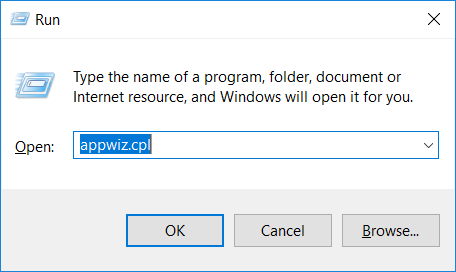
3. The “Programs and features” menu should now appear. It’s a list of all the programs installed on the PC. Here you can find the program, select it, and press “Uninstall“.
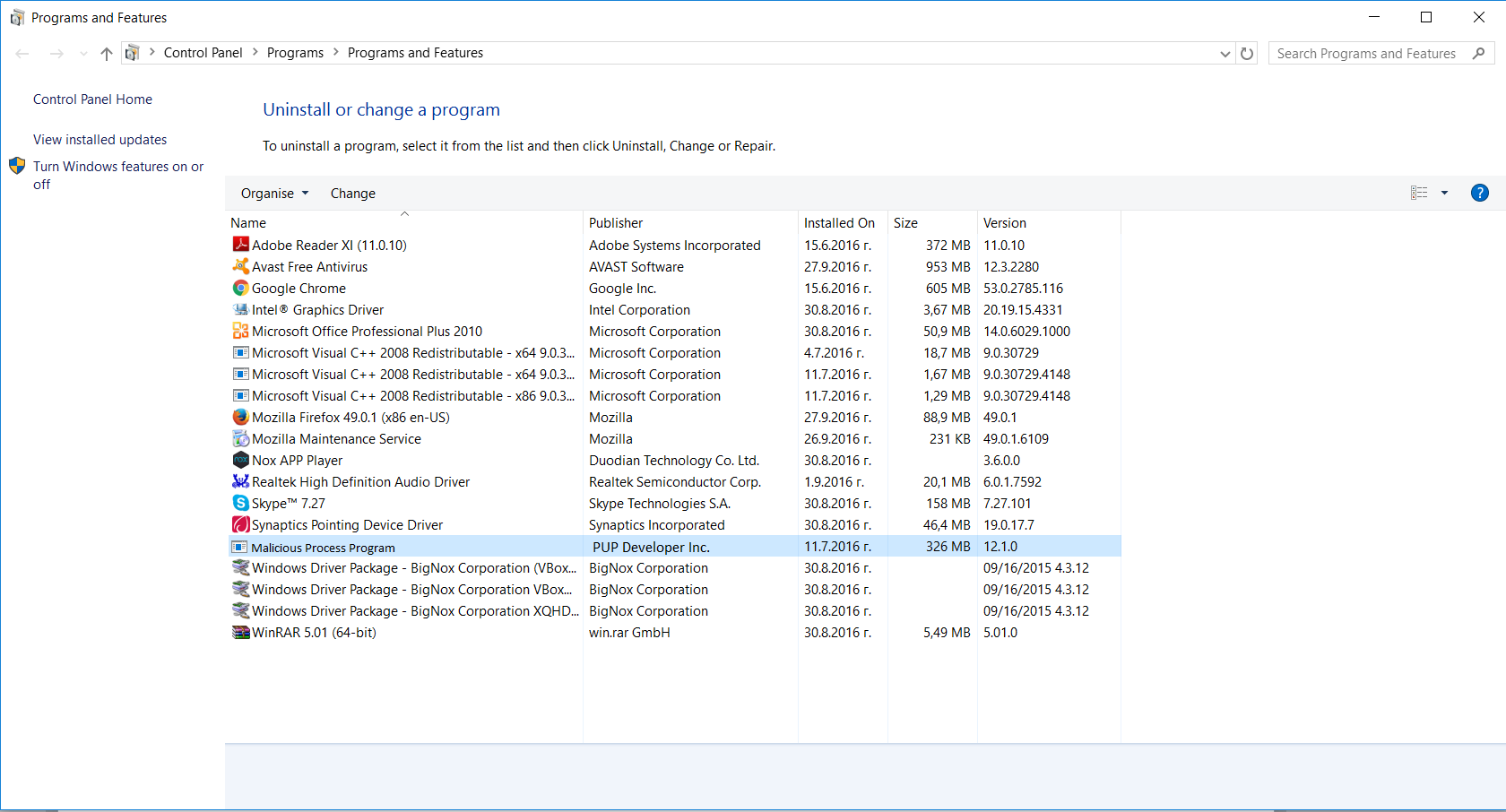
Remove Pushwhy.com Virus From Your Browser
Before resetting your browser’s settings, you should know that this action will wipe out all your recorded usernames, passwords, and other types of data. Make sure to save them in some way.
-
1. Start Mozilla Firefox. In the upper right corner, click on the Open menu icon and select “Add-ons“.
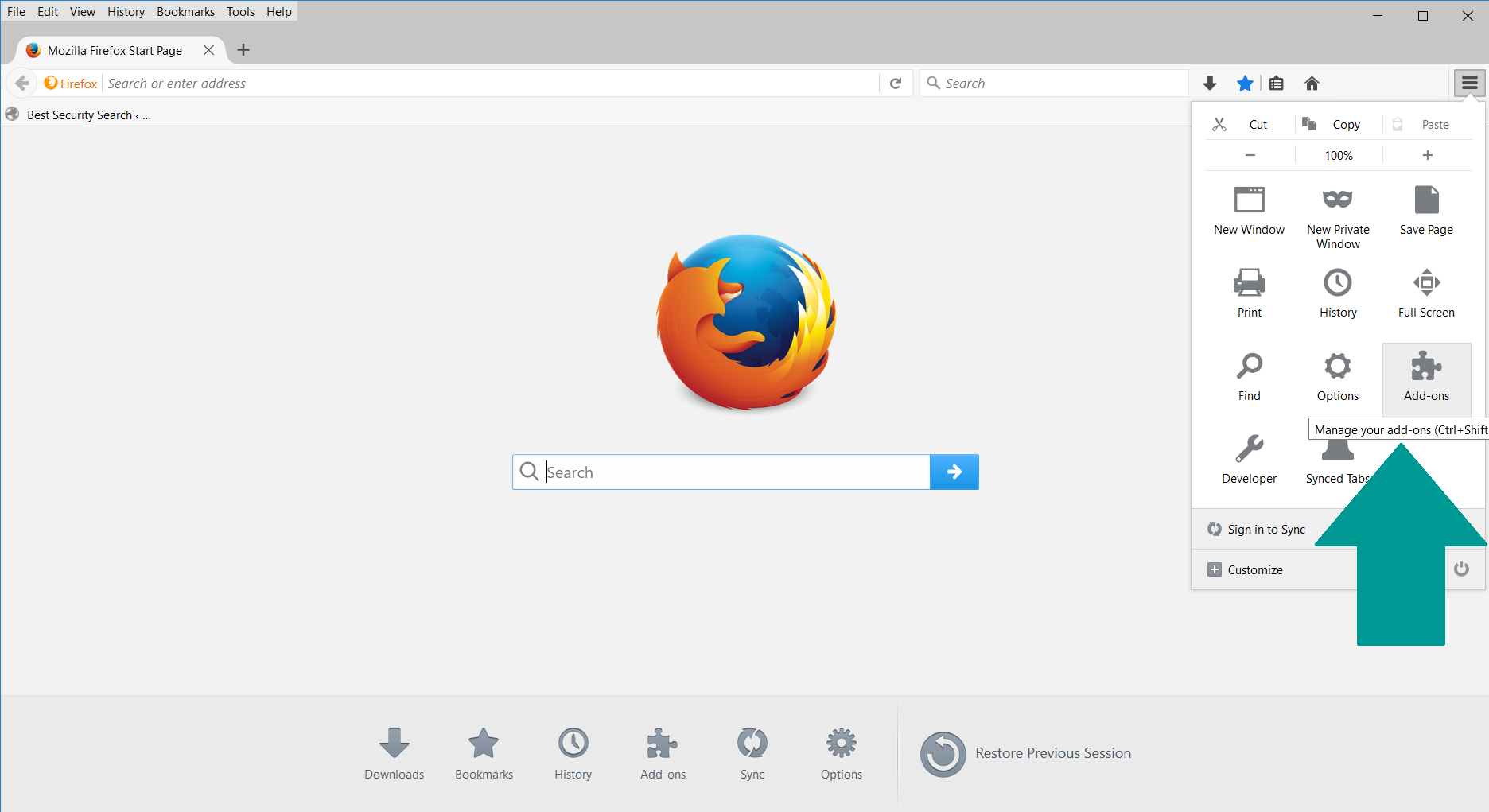
2. Inside the Add-ons Manager select “Extensions“. Search the list of extensions for suspicious entries. If you find any, select them and click “Remove“.
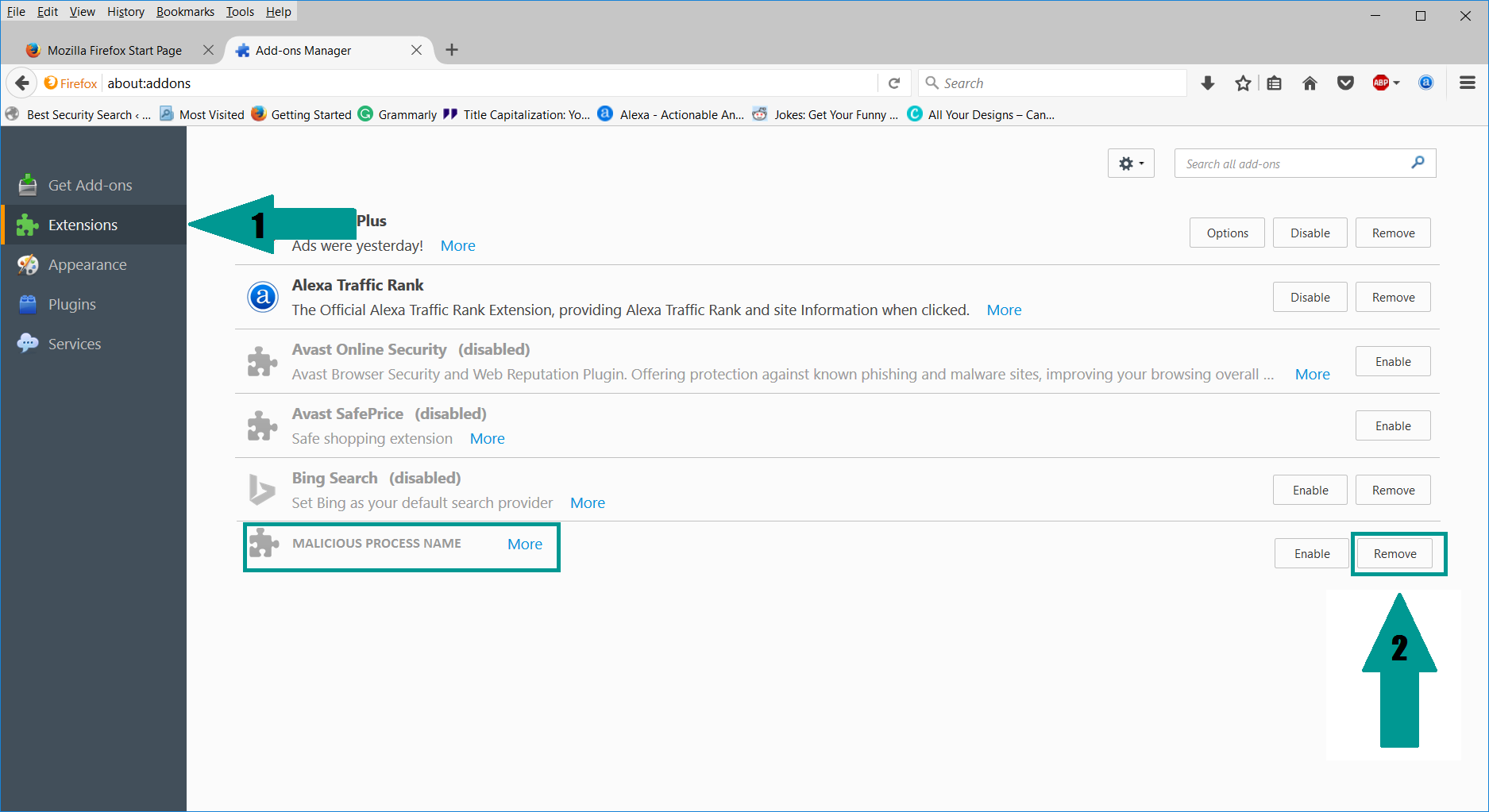
3. Click again on the Open menu icon, then click “Options“.
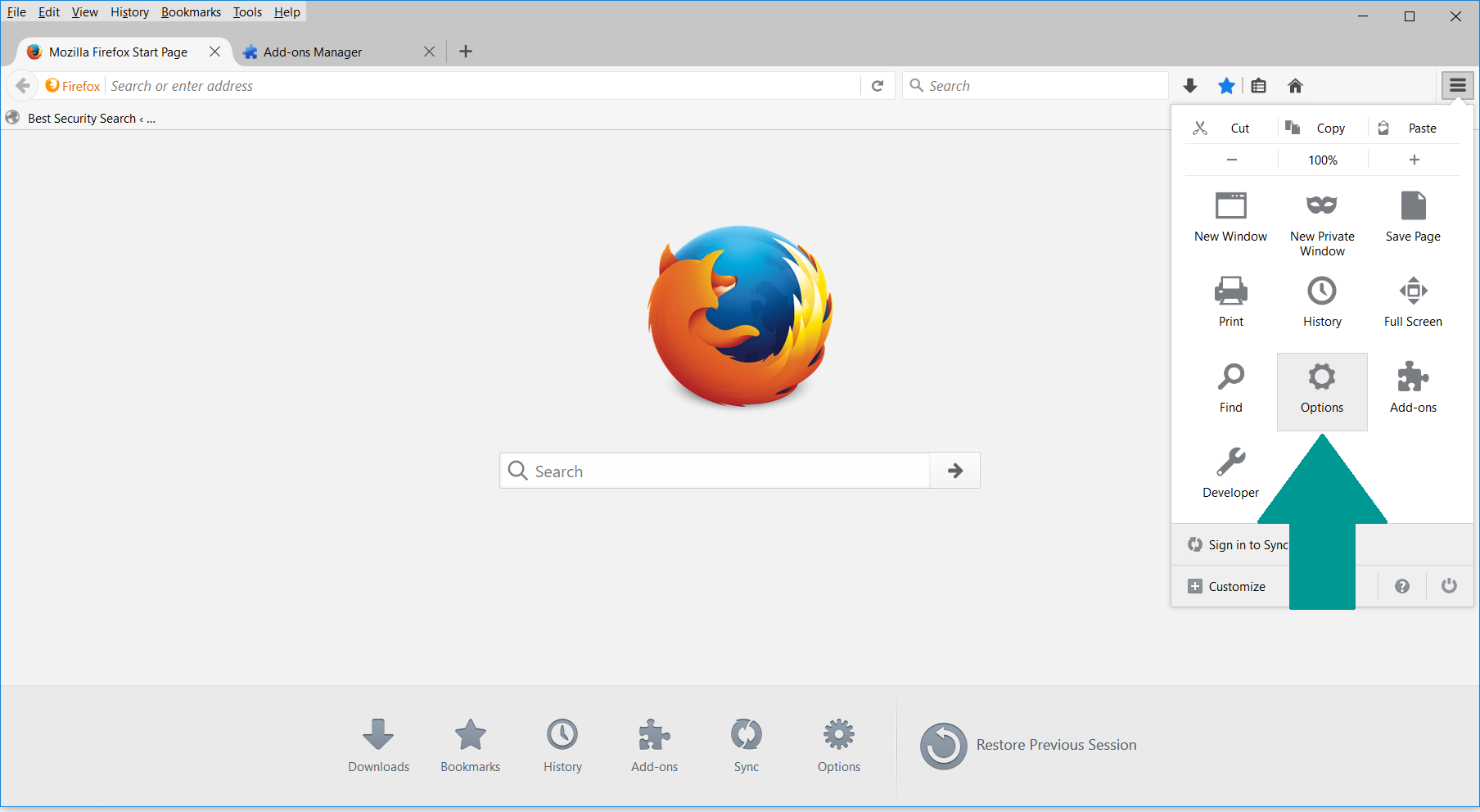
4. In the Options window, under “General” tab, click “Restore to Default“.
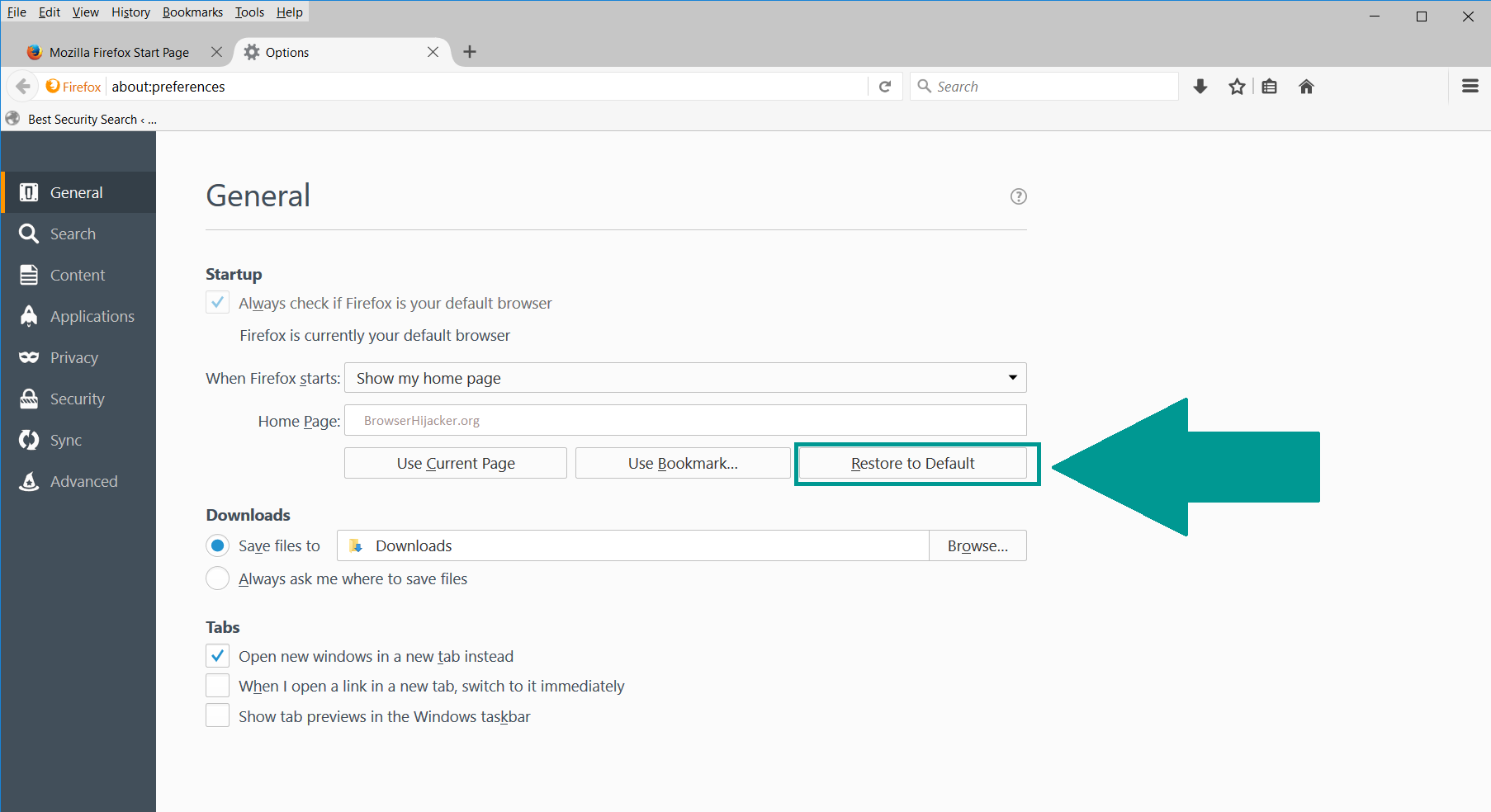
5. Select “Search” in the left menu, mark the unknown search engine and press “Remove”.
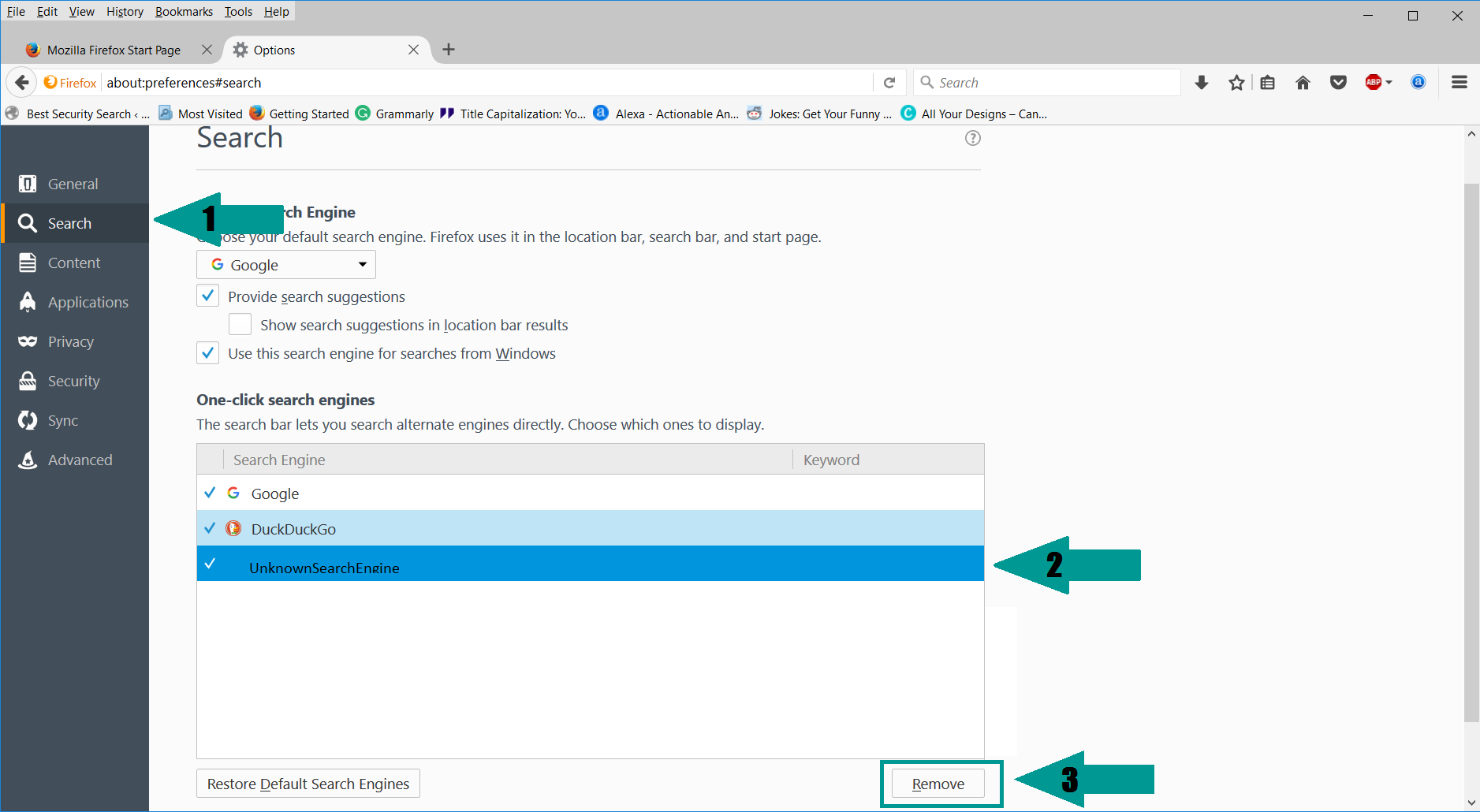
-
1. Start Google Chrome. On the upper-right corner, there a “Customize and Control” menu icon. Click on it, then click on “Settings“.
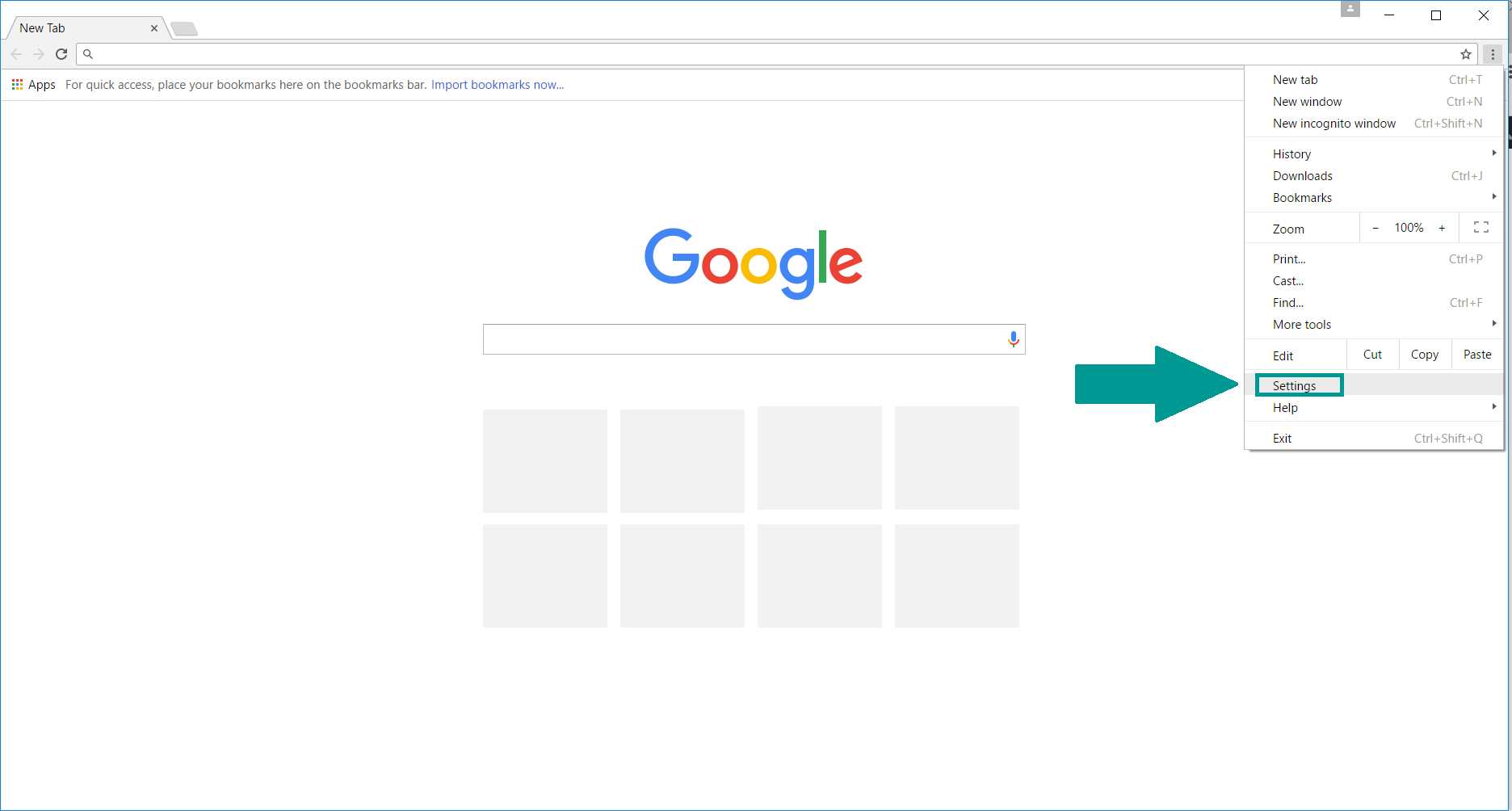
2. Click “Extensions” in the left menu. Then click on the trash bin icon to remove the suspicious extension.
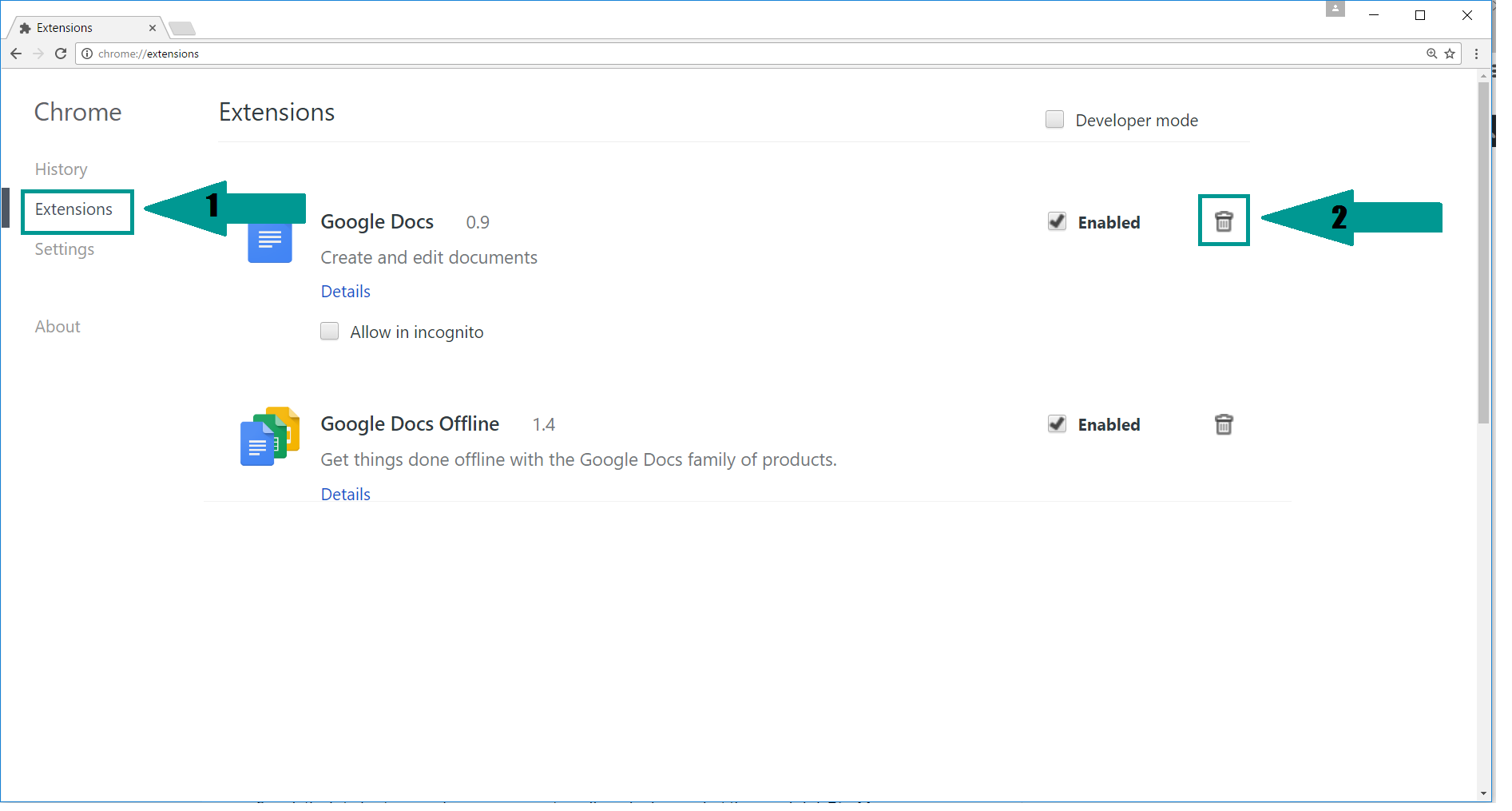
3. Again in the left menu, under Chrome, Click on “Settings“. Go under “On Startup” and set a new page.
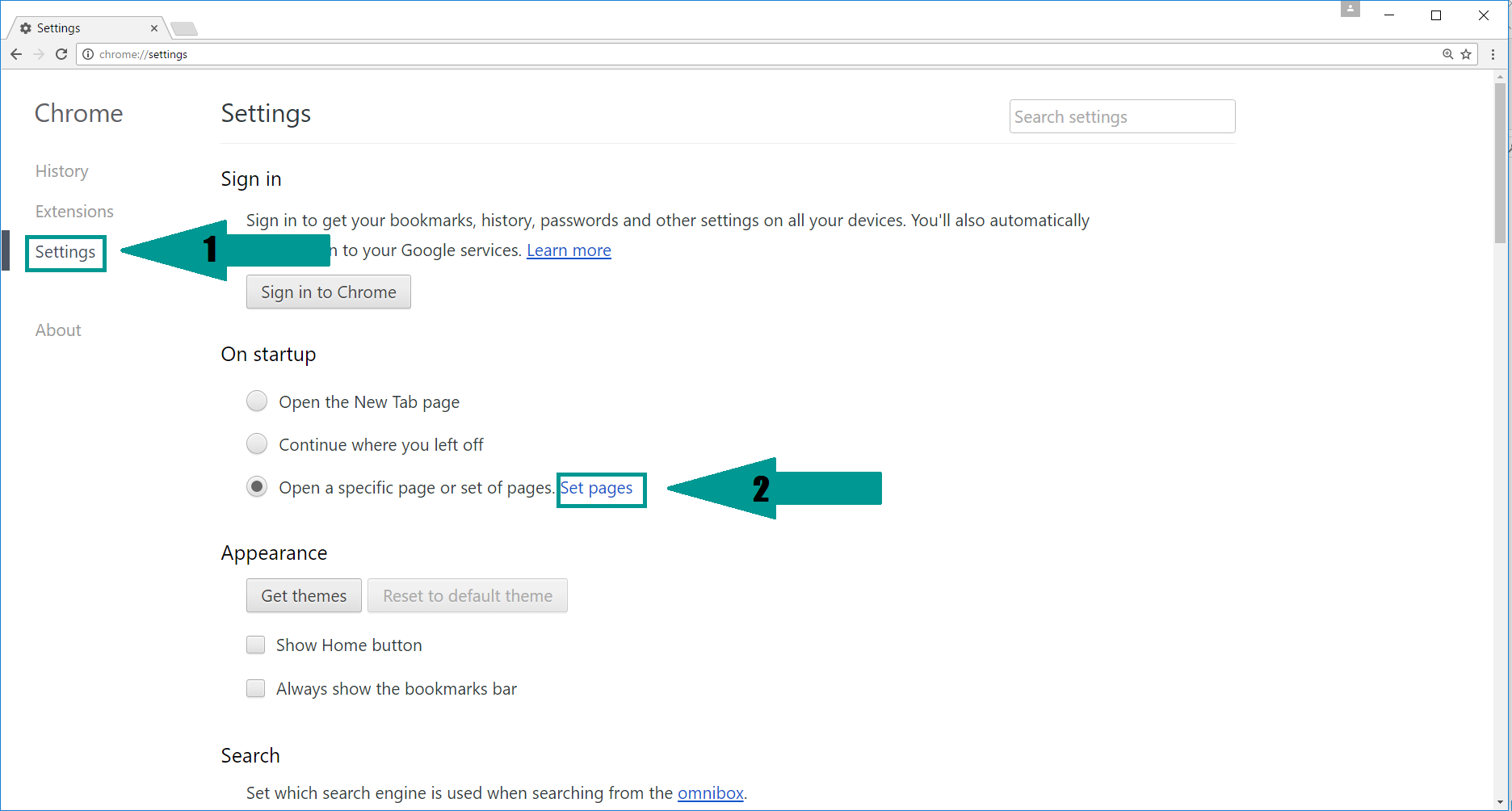
4. Afterward, scroll down to “Search“, click on “Manage search engines“.
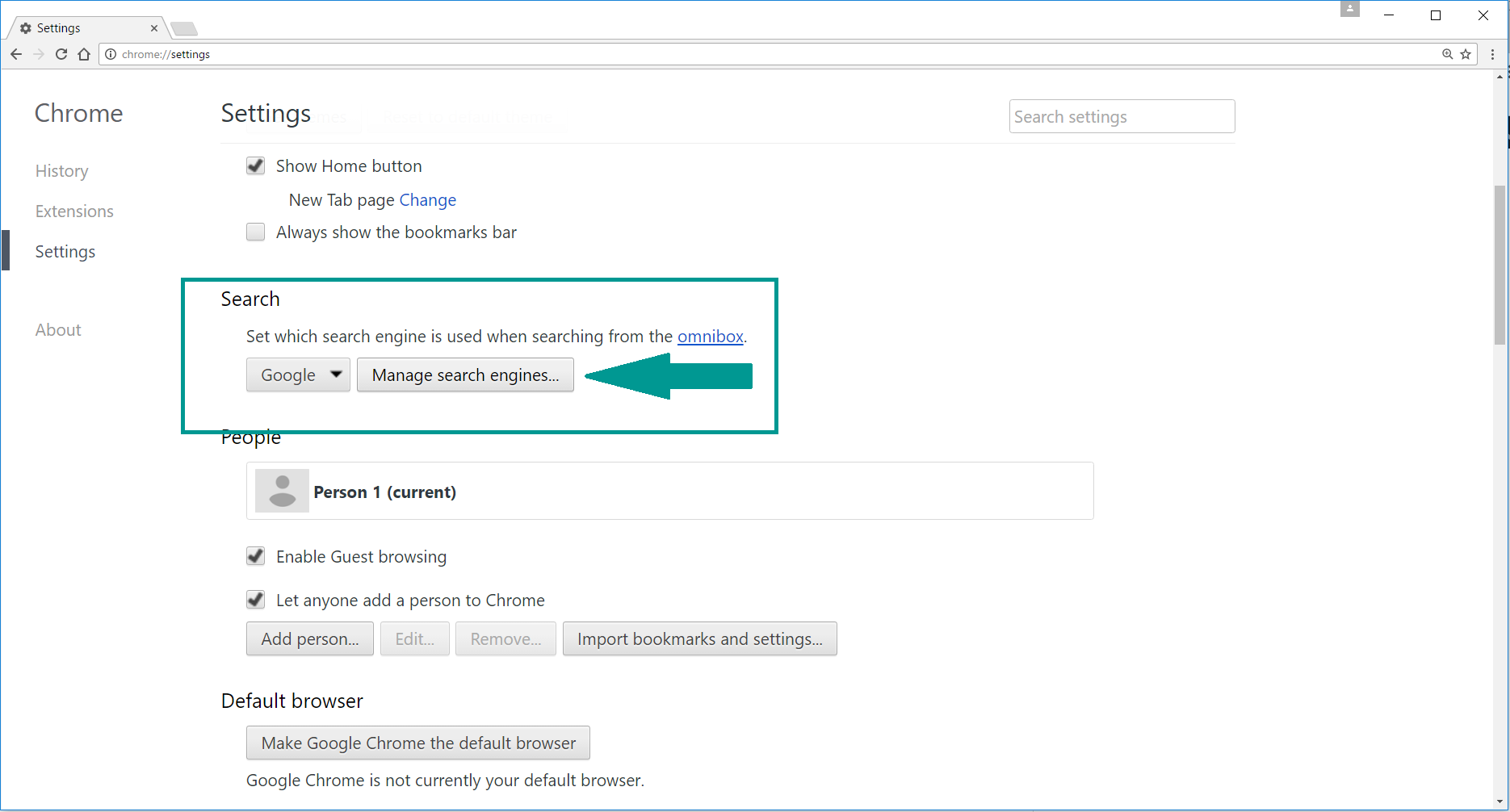
5. In the default search settings list, find the unknown search engine and click on “X“. Then select your search engine of choice and click “Make default“. When you are ready click “Done” button in the right bottom corner.
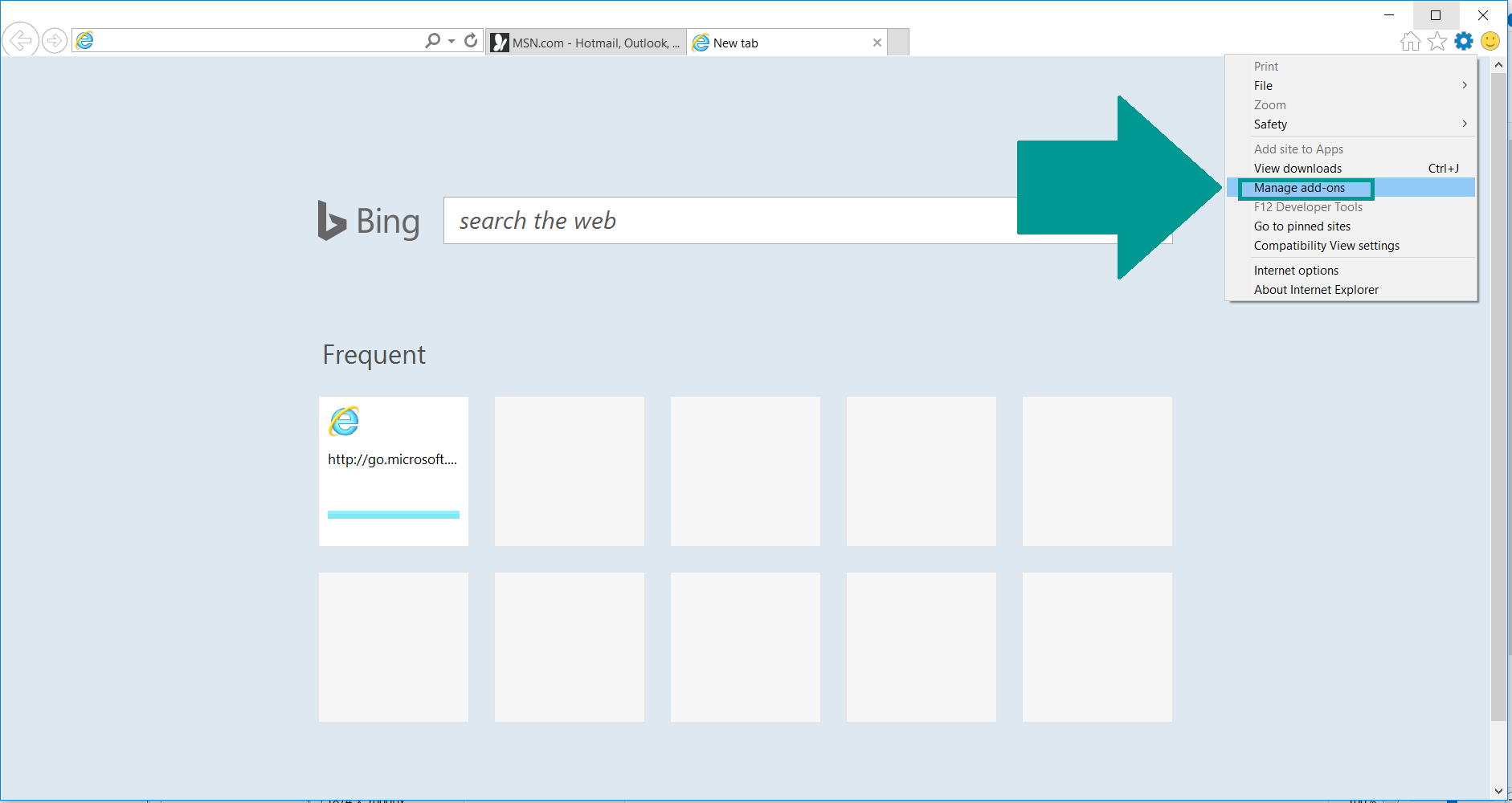
2. In the “Manage add-ons” window, bellow “Add-on Types“, select “Toolbars and Extensions“. If you see a suspicious toolbar, select it and click “Remove“.
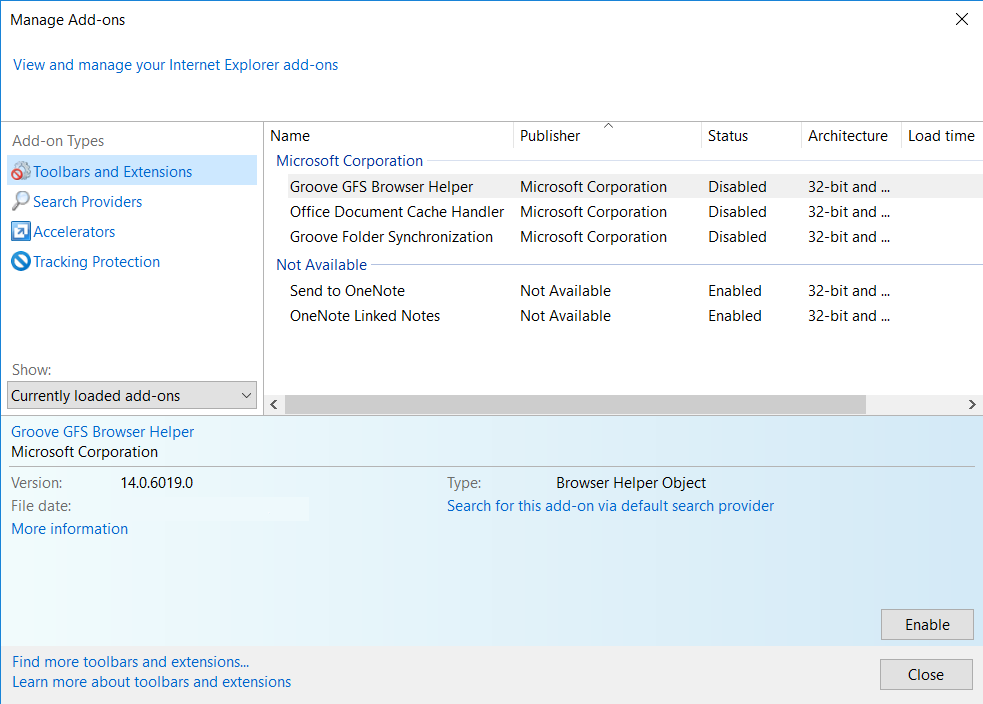
3. Then again in the “Manage Add-ons” window, in “Add-on Types“, Select “Search Providers“. Chose a search engine and click “Set as default“. Select the unknown search engine and click “Remove and Close”.
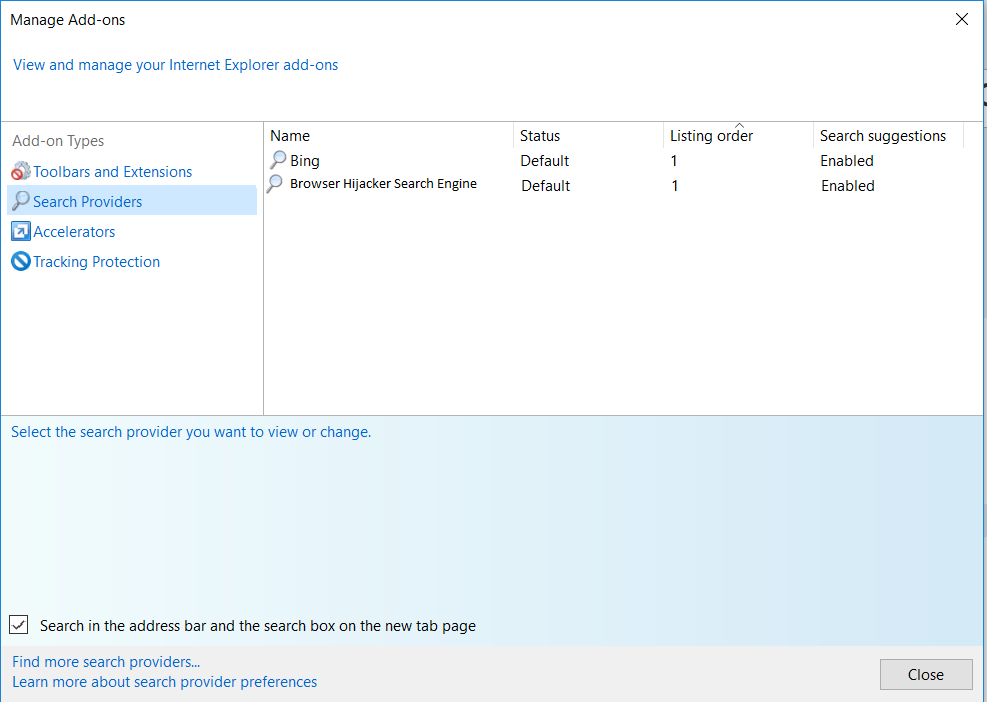
4. Open the Tools menu, select “Internet Options”.
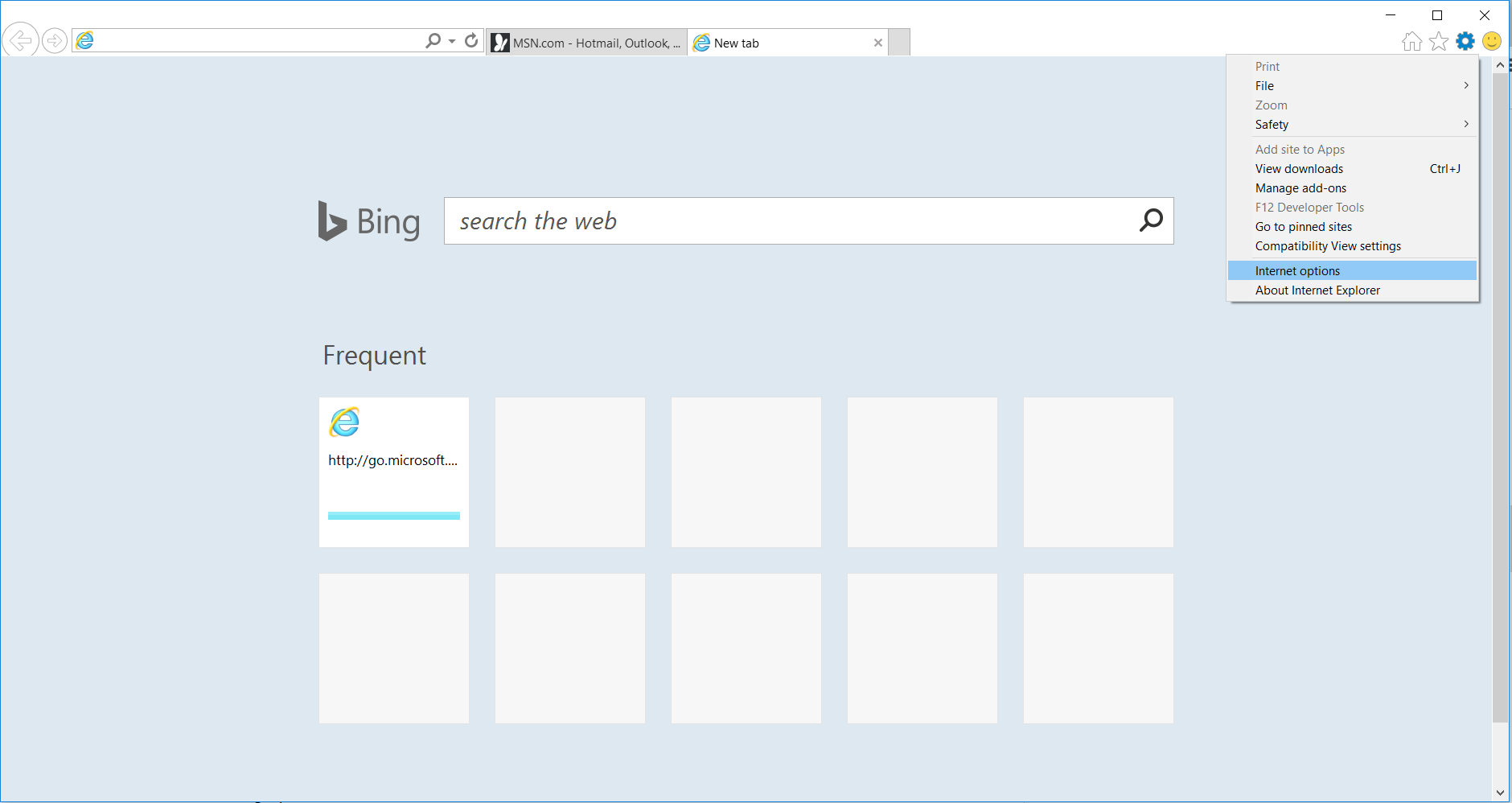
5. In the “General” tab, in “Home page”, enter your preferred page. Click “Apply” and “OK”.
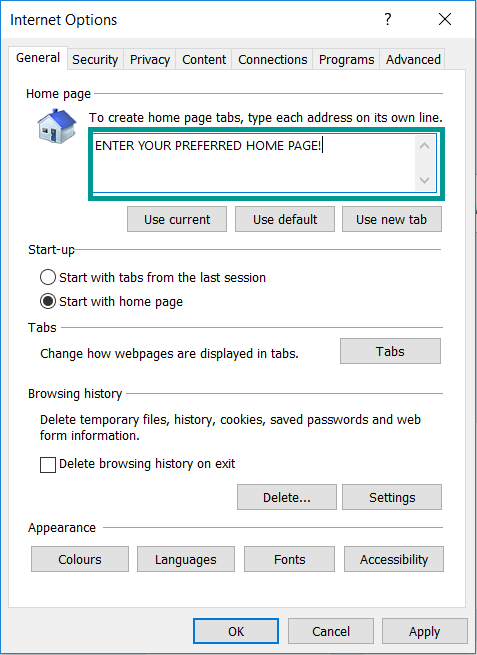
Repair Windows Registry
1. Again type simultaneously the WIN Key + R key combination
2. In the box, write regedit and hit Enter
3. Type the CTRL+ F and then write the malicious name in the search type field to locate the malicious executable
4. In case you have discovered registry keys and values related to the name, you should delete them, but be careful not to delete legitimate keys
Click for more information about Windows Registry and further repair help



